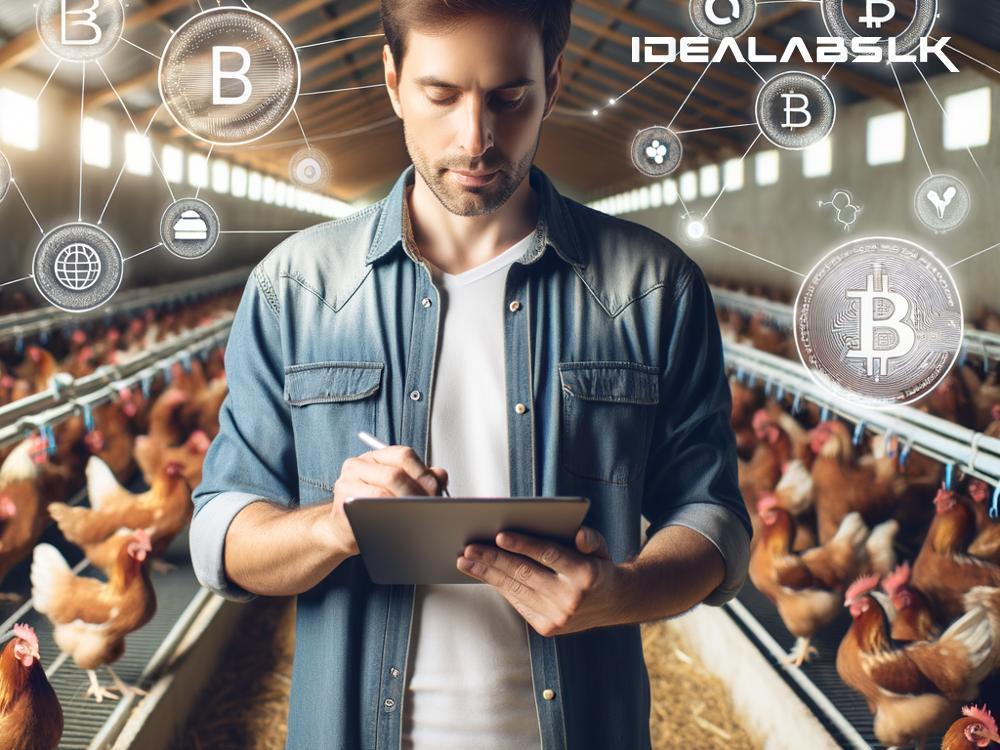Blockchain's Role in Ensuring Ethical Poultry Farming
In today’s world, the conversation about the food we eat has gone beyond just taste and nutrition. More and more people are becoming interested in exactly where their food comes from, how it's produced, and whether it’s done in an ethical manner. This is especially true for poultry farming, where concerns about animal welfare, environmental sustainability, and food safety are prevalent. But how can we ensure that the chicken we buy from the supermarket or the eggs we eat for breakfast come from sources that treat their poultry well and follow ethical practices? The answer may lie in an innovative technology known as blockchain.
What is Blockchain?
First off, what exactly is blockchain? To put it simply, blockchain is a kind of digital ledger or record-keeping technology. Imagine it as a notebook that, instead of being held by one person or company, is shared across thousands of computers around the world. Every time a transaction occurs, such as a farmer selling eggs to a processing facility, it gets recorded in this notebook. What's unique about blockchain is that once something is written down, it can’t be erased or altered, and because the notebook is shared by so many computers, it’s very hard for someone to cheat or falsify records.
How Can Blockchain Help in Ethical Poultry Farming?
1. Transparency
With blockchain, every step of a chicken or egg's journey from the farm to your plate can be recorded and made visible to you. This includes how the poultry was raised, what it was fed, how it was treated, and even its health history. When consumers have access to this information, they can make informed choices, opting to buy products from farms that prioritize the welfare of their animals and adhere to ethical practices.
2. Traceability
Imagine buying a dozen eggs and being able to track their journey all the way back to the hen that laid them. Blockchain makes this possible. If an issue arises, such as a disease outbreak, blockchain records can quickly pinpoint the source, allowing for swift action to contain the problem and prevent it from spreading. This not only helps in ensuring the health and welfare of the poultry but also safeguards human consumers.
3. Accountability
Blockchain’s unchangeable record system discourages unethical practices. Knowing that every action is being recorded and can be scrutinized by consumers, auditors, or regulators motivates farmers and companies to adhere to ethical and sustainable practices. It holds everyone in the supply chain accountable for their actions, helping to eliminate practices such as overcrowding, improper feed, or inadequate healthcare.
4. Certification and Standards Compliance
Various certifications exist to denote farms that follow ethical practices, like free-range or organic. However, it's sometimes difficult to verify the authenticity of these claims. Blockchain can securely store certification details that are easily verifiable by consumers and inspectors alike. This ensures that when a product claims to be organic or free-range, it truly meets those standards.
Real-world Application: A Hypothetical Scenario
Let's envision a practical scenario. A family wants to purchase chicken that has been raised in a free-range environment, without the use of antibiotics, and fed organic feed. In our blockchain-assisted future, they could scan a QR code on the packaging with their smartphone. Instantly, they’d have access to the chicken's entire life history - where it was raised, its diet, healthcare records, and more. They could even see information about the farm’s ethical and environmental certifications. In making this information so accessible and verifiable, blockchain technology empowers consumers to make ethical choices and encourages farms and businesses to maintain high standards.
The Road Ahead
The implementation of blockchain in ensuring ethical poultry farming is still in its nascent stages. However, its potential to transform the industry is immense. As consumers, it’s essential we demand transparency and ethical practices in our food production systems. On the other side of the equation, farmers and businesses that adopt blockchain can not only meet this demand but also stand out in a crowded marketplace by showcasing their commitment to ethical practices.
The journey from farm to fork is complex, but blockchain offers a promising solution to making it more transparent, traceable, and ethical. As we look towards a future where the welfare of animals and the sustainability of our practices are paramount, blockchain technology may very well be the key to making ethical poultry farming not just a niche market, but the standard.

